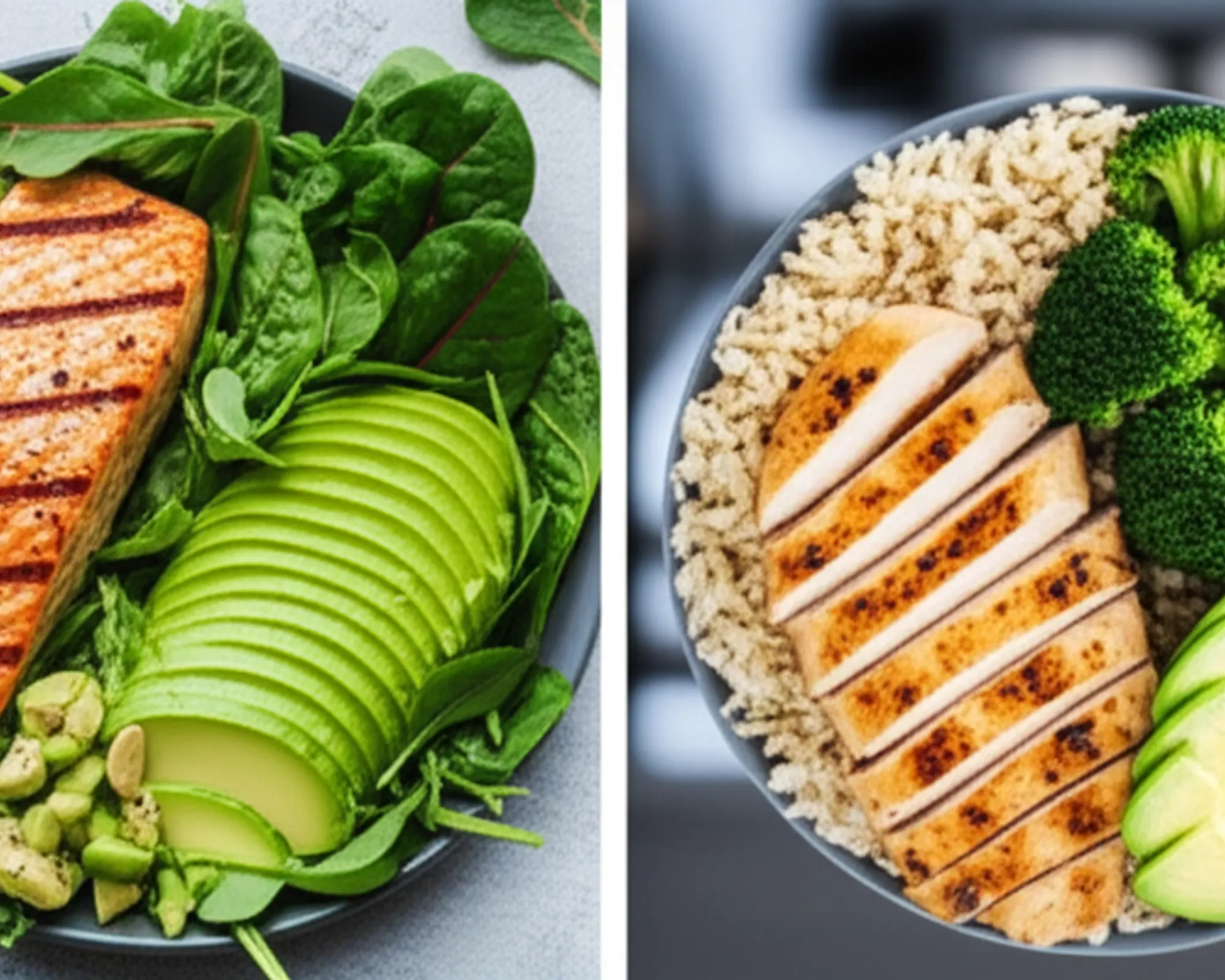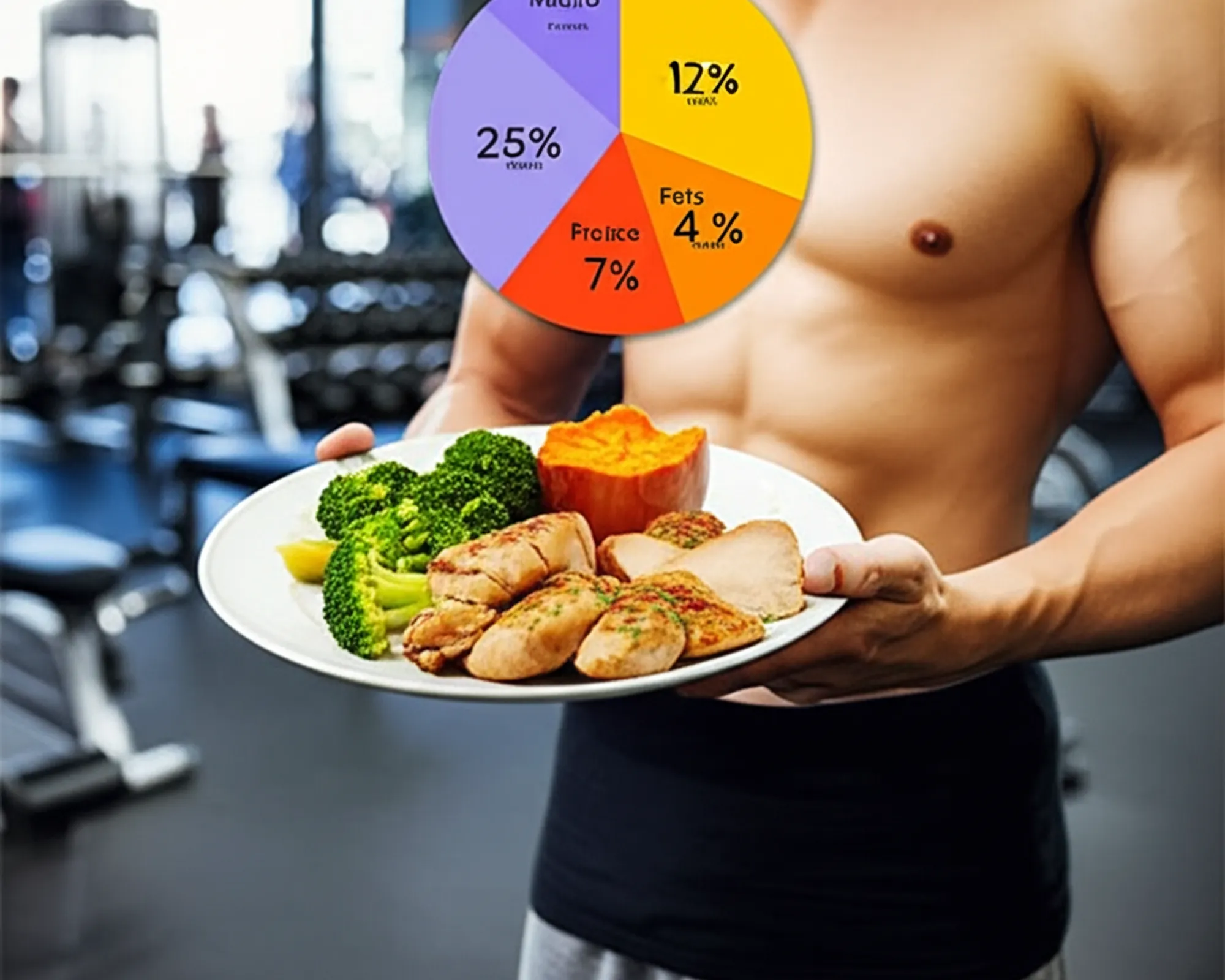Vegan Diet for Gym: Can You Still Build Muscle?

For years, the world of bodybuilding and fitness has been dominated by the image of meat and dairy as essential components for muscle growth. Ask anyone about building muscle, and visions of chicken breasts, eggs, and protein shakes derived from whey often come to mind. But what if you choose a different path? What if you're committed to a vegan lifestyle but still dream of hitting personal bests, sculpting a powerful physique, and seeing significant gains in the gym?
Dispelling the Myth: Can Vegans Build Muscle?
The short answer is a resounding YES! Not only is it possible to build substantial muscle mass on a vegan diet, but many athletes worldwide are living proof, demonstrating incredible strength, endurance, and physiques fueled entirely by plants. The key lies not in whether you eat animal products, but in understanding nutritional principles, diligent meal planning, and consistent training.
The Protein Puzzle: Getting Enough on a Plant-Based Diet
The most common concern for aspiring vegan lifters is protein intake. Protein is crucial for muscle repair and growth, providing the amino acids that act as building blocks. While animal products are complete proteins (containing all nine essential amino acids), plants offer a diverse array of protein sources that, when combined thoughtfully, easily meet your needs.
Excellent plant-based protein sources include:
- Legumes: Lentils, chickpeas, black beans, kidney beans – versatile and packed with protein and fiber.
- Soy Products: Tofu, tempeh, edamame – complete proteins that are incredibly versatile in cooking.
- Grains: Quinoa (a complete protein), brown rice, oats, whole-wheat pasta.
- Nuts and Seeds: Almonds, peanuts, cashews, chia seeds, flax seeds, hemp seeds – good sources of protein, healthy fats, and micronutrients.
- Seitan: Made from wheat gluten, seitan is incredibly high in protein and has a meat-like texture.
- Vegan Protein Powders: Pea, rice, hemp, or blended plant-based proteins can be convenient for boosting intake, especially post-workout.
Don't get too caught up in "complete" versus "incomplete" proteins. As long as you consume a variety of plant-based foods throughout the day, your body will assemble all the necessary amino acids. Focus on consuming enough overall protein, typically aiming for 1.6-2.2 grams per kilogram of body weight for muscle growth.
Beyond Protein: The Full Spectrum of Vegan Nutrition for Gains
While protein takes the spotlight, a successful muscle-building diet is holistic. Carbohydrates are your primary energy source for intense workouts and crucial for glycogen replenishment, aiding recovery. Whole grains, fruits, and starchy vegetables provide complex carbs and fiber. Healthy fats, found in avocados, nuts, seeds, and olive oil, are vital for hormone production and overall health.
Micronutrients are equally critical. Vegans need to pay attention to certain vitamins and minerals that are less abundant in plant foods or have lower bioavailability. These include:
- Vitamin B12: Found almost exclusively in animal products. Fortified foods (plant milks, cereals, nutritional yeast) and a reliable B12 supplement are essential.
- Iron: Abundant in lentils, spinach, kale, and fortified cereals. Enhance absorption by consuming iron-rich foods with Vitamin C (e.g., bell peppers, oranges).
- Calcium: Found in fortified plant milks, tofu (calcium-set), leafy greens (collard greens, kale), and sesame seeds.
- Vitamin D: Best obtained from sun exposure, fortified foods, or a supplement.
- Zinc: Present in legumes, nuts, seeds, and whole grains.
- Omega-3 Fatty Acids: ALA (alpha-linolenic acid) is found in flax seeds, chia seeds, and walnuts. Consider an algae-based DHA/EPA supplement for direct sources.
A well-planned vegan diet, rich in whole, unprocessed foods, will naturally provide most of these nutrients. Supplementation can bridge any potential gaps.
Training Smart: No Different for Vegans
The principles of muscle building remain the same regardless of your diet. To build muscle, you need to:
- Practice Progressive Overload: Continuously challenge your muscles by increasing weight, reps, sets, or decreasing rest times.
- Train Consistently: Stick to a structured workout plan.
- Prioritize Recovery: Adequate sleep (7-9 hours) is where muscles repair and grow.
- Stay Hydrated: Water is essential for every bodily function, including nutrient transport and muscle contraction.
Your body doesn't know if the protein comes from a cow or a lentil; it only recognizes amino acids and the stimulus from resistance training.
Practical Tips for Vegan Muscle Building
1. Calorie Surplus is Key: To gain muscle, you generally need to consume more calories than you burn. Plant-based foods are often less calorie-dense, so you might need to eat larger volumes or incorporate calorie-dense options like nuts, seeds, nut butters, and avocados.
2. Meal Timing: While total daily intake matters most, strategic meal timing can optimize results. Consuming protein and carbohydrates around your workouts can aid recovery and muscle protein synthesis.
3. Plan Your Meals: A little preparation goes a long way. Batch cook grains and legumes, prepare snacks, and ensure your meals are balanced.
4. Listen to Your Body: Pay attention to your energy levels, recovery, and progress. Adjust your food intake and training as needed.
5. Don't Fear Carbs: They are your friends! They fuel your workouts and help prevent your body from using protein for energy, thus preserving it for muscle repair.
The Verdict: Vegan Gains Are Real
The idea that you can't build significant muscle on a vegan diet is an outdated misconception. With a well-planned, nutrient-dense vegan diet, consistent progressive training, adequate rest, and strategic supplementation where necessary, you can absolutely achieve your muscle-building goals. Embracing a vegan lifestyle for fitness isn't a limitation; it's an opportunity to explore a vast array of delicious, health-promoting foods that can fuel you to new heights in the gym and beyond.


